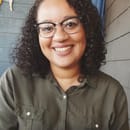Content warning: sexual assault
Recently throughout social media, the popular topic of conversation has been about the six-part docuseries released by Lifetime called Surviving R. Kelly. The docuseries details sexual abuse allegations against the singer and interviewed several of his alleged victims and survivors. The docuseries provided the victims and survivors with the opportunity to finally tell their stores, which allowed for an important issue to be displayed and discussed on a wide platform.
Lifetime did a noteworthy thing by allowing Kelly’s victims and survivors the opportunity to finally let their voices be heard as inspiration for other victims of sexual assault and physical abuse. This was a way for the victims to try and heal from their past trauma.
However, why did it take so long to finally get their side of the story? Why is it that even after the documentary people still continue to support R. Kelly and other artists such as XXXTentacion and Tekashi 69 who have gone to trial over sexual assault allegations? Why aren’t victims taken seriously when they try and speak up?
Many victims of sexual assault and abuse are afraid to speak out against their abusers because of the fear of not being believed, this is especially true for victims of color. According to Teresa Stafford a specialist at the Cleveland Rape Crisis Center, “60 percent of black girls are sexually abused by the time they turn 18.”
Society has to stop allowing girls of color to be victimized and not taken seriously. In Surviving R. Kelly, most of his victims were young black girls, and he was found innocent. If those girls would have been white would the verdict have been the same?
In 2017, Georgetown Law published a study titled “Girlhood Interrupted” that evaluates the and scale of innocence for a black girl in society. According to the lead author, Rebecca Epstein, “What we found is that adults see Black girls as less innocent and less in need of protection as white girls of the same age.” Black and brown girls bodies are seen as hyper-sexualized, unworthy, and don’t matter to the law. This mindset needs to change. Systemically, white women are seen as deserving of security and protection, whereas black women and other women of color are not, which leaves them more vulnerable to sexual abuse and violence.
All survivors deserve the opportunity to be heard, but the issue of race playing a factor in believing victims needs to be addressed. It’s finally time for the legal system and society to see black and brown bodies for what they are: valuable and worthy.Image source: Clarke Sanders
If you or someone you know is being sexually abused, assaulted, or raped, and need to speak to someone, the National Sexual Assault Hotline is 1-800-656-HOPE (4673).
Image source: Samantha Sophia



